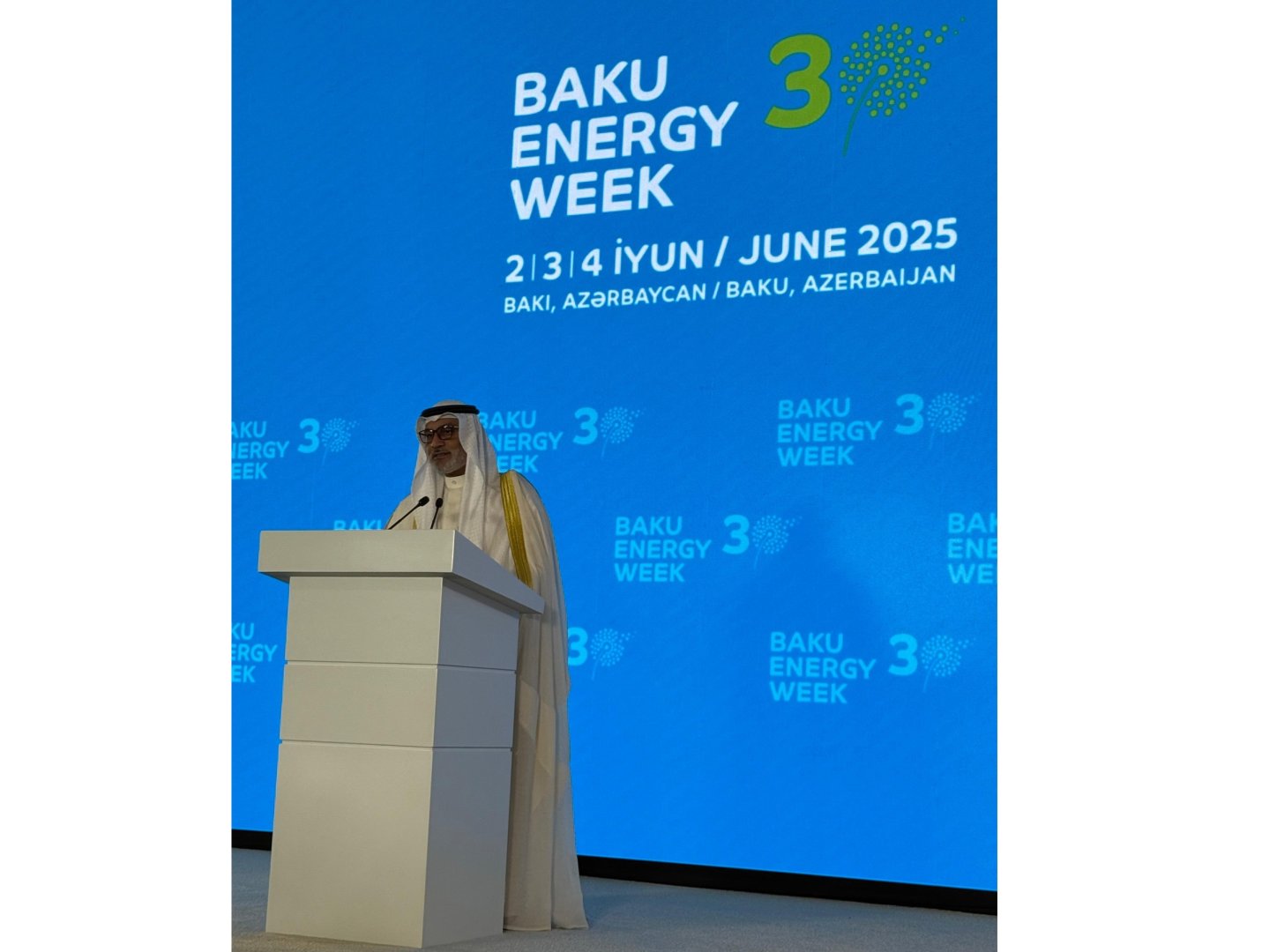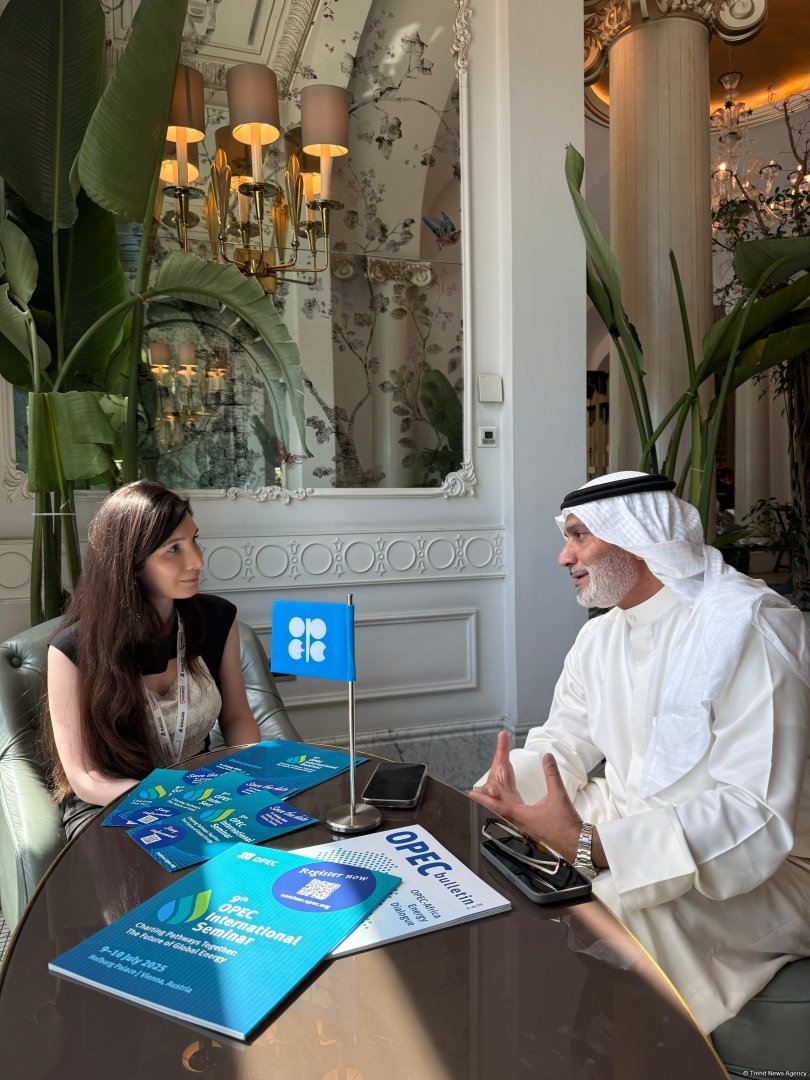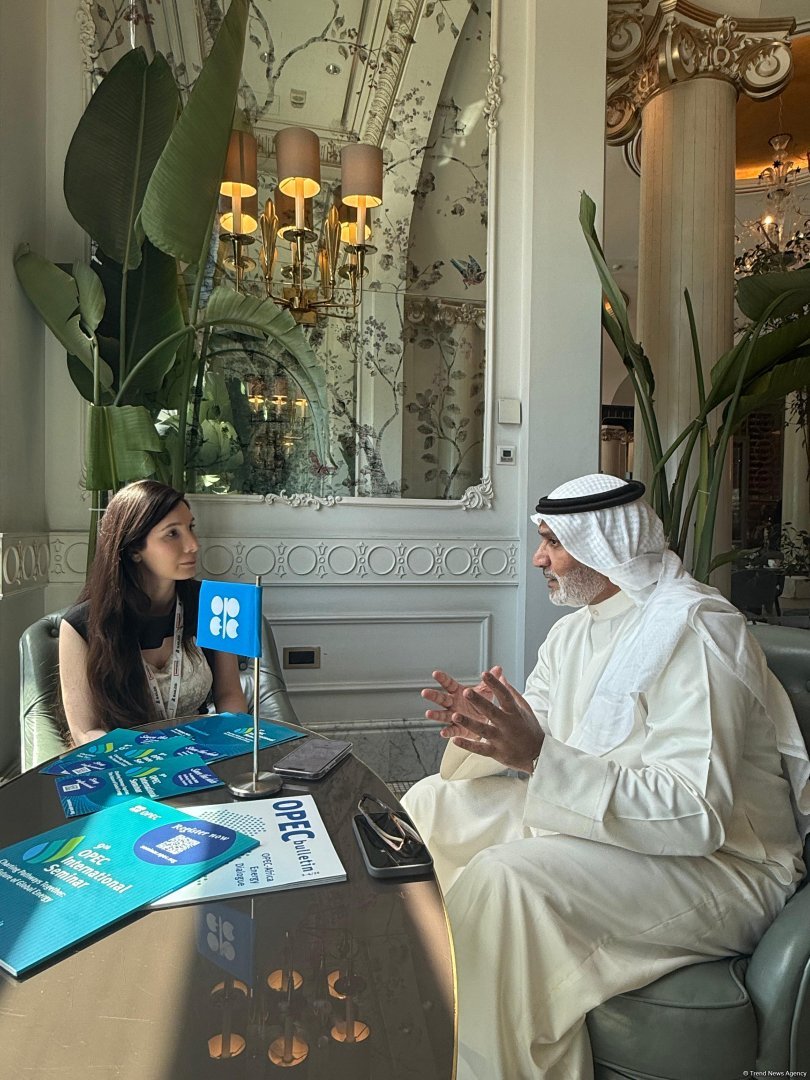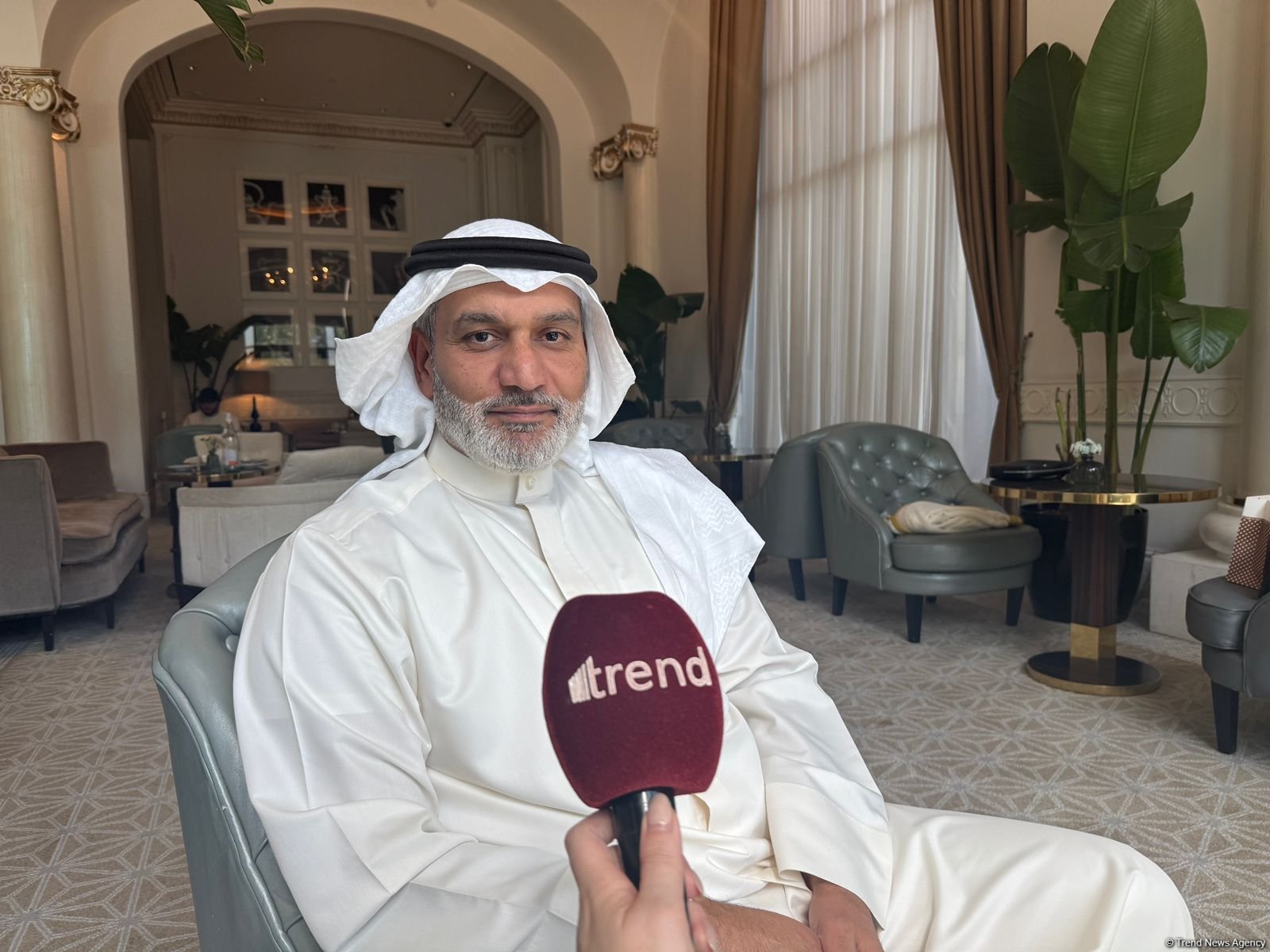BAKU, Azerbaijan, June 3. By 2050, OPEC forecasts oil demand to reach over 120 million barrels a day, which is significant, Secretary General of the Organization of the Petroleum Exporting Countries (OPEC) Haitham Al Ghais said in an exclusive interview with Trend on the sidelines of Baku Energy Week.
“It's a great pleasure to be in Baku again for Baku Energy Week in its 30th anniversary, which is a sign of how important this event is. Of course, in making forecasts we look at all aspects of the market. We look at the global economy to start with, which we still feel is quite robust. We're expecting growth this year of around 2.9%, despite some challenges. We look at supply and demand. We're forecasting demand to be growing by around 1.3 million barrels per day this year compared to the previous year,” he said.
Al Ghais pointed out that for supply, OPEC looks at various components: “For us, we are assessing this year's non-DoC supply growth, meaning countries not in the Declaration of Cooperation (DoC). Supply is expected to grow by around 800,000 barrels per day compared to last year. A big part is still coming from the United States. OPEC forecasts US oil production will increase by 330,000 barrels per day in 2025, albeit this is much lower than previous years and we have also seen a significant decline in the rig count recently. Most of that, of course, is shale oil. Also, when there is talk about trade and tariffs, one tends to look at it from the effects on the economy and the demand side. It will also have an effect on the supply side, because of the cost of raw materials, steel, cement. However, all of these things are still factors that are taking time to play out.”
The Secretary General noted that OPEC continuously monitors and assesses the main market dynamics on a monthly basis.
“Non-DOC supply is coming from many other sources too, including, Brazil, Canada, some places in South America and Asia. Chinese oil production is rising this year compared to previous years, when it was flat. So, it's not only about the United States production, which is of course, a very important component of the global supply-demand picture,” he said.
The Secretary General also noted that OPEC will launch its updated World Oil Outlook in July at the OPEC International Seminar. Some of the key aspects, trends and messages in the Outlook are related to pragmatism. In fact, “this is one of the key things we have seen in the last 1-2 years -- more people are approaching the world's energy pathways with more pragmatism and realism.”
Al Ghais went on to add that it was important to consider that there will be nearly 2 billion more people on this planet by 2050, and a lot of these people will be in the non-OECD, the developing world, alongside that the urbanization rate is growing significantly, with OPEC seeing from now to 2030 nearly 500 million people moving to cities around the world.
“You can imagine how much these cities will require in terms of the consumption of electricity, gas, gasoline, diesel, heating, air conditioning. We believe in recent years there has been a pushback on policies related to net zero and alternatives, such as renewables. We are not against the fact that there will be an increase in the penetration of the renewable energies. However, we believe that renewable energies alone cannot fuel the world's economic growth and future energy requirements. The world has to become more realistic and pragmatic in terms of adopting all energies. I underline the word all, because OPEC believes in an all-energies approach. We believe in wind, solar, hydrogen, renewables, coal, and of course oil and gas, which will remain very prominent in the energy mix,” he said.
“The issue is how we can adopt all of these energies and at the same time reduce emissions. Because the challenge the world is facing is about emissions, not energy sources. The core principle of the Paris Agreement is to reduce emissions. That's why in OPEC we take a pragmatic and realistic approach,” he said.
The Secretary General noted that today, oil and gas representaround almost 55% of the global energy mix.
“With coal, together, it's 80%. Since the 1980s, it has also been around 80%. The world has spent nearly $10 trillion in the last 20 years to transition away from fossil fuels. But this has not happened. Because the world is consuming more oil, more coal, more gas than ever before. Our projections show that by the end of 2025, in the last quarter of this year, oil demand will reachover 106 million barrels a day, a new record. By 2050, we forecast oil demand to reach over 120 million barrels a day, which is significant. Because oil alone is 30% of the global energy mix and we see it continuing at around this level even in 2050. Therefore, we require a lot of investments. These will be some of the significant and very important messages we will be highlighting in our outlook this year,” he said.
Al Ghais pointed out that OPEC considers all of the emerging trends in its forecasting, whether it's short-term, medium-term, or long-term.
“Of course, you cannot make a forecast without looking at geopolitics, economic growth, population growth and other trends. Our data looks at everything on a pure merit basis. We don't look at it with an ideological perspective; we remove ideology and focus on the facts and figures. The most important thing is that we do these things on a purely technical basis. At the end of the day, it's always the fundamentals that win. Fundamentals that are based on solid forecasting and good research and analysis always win,” he explained.
Talking about the upcoming 9th International OPEC Seminar, he noted that this is the Organization’s flagship event, one that is held every two years.
“And every year it's more successful. This year it will be the ninth OPEC International Seminar in Vienna, which will be held on the 9th and 10th of July. Of course, we will be honoured with the presence of Azerbaijan’s Minister of Energy Parviz Shahbazov and COP29 President Mukhtar Babayev. In addition to that, this year, for the first time, Azerbaijan’s state oil company SOCAR has agreed to become a sponsor of the event. SOCAR’s president Rovshan Najaf will also attend the event.
We have a very rich programme: three ministerial panels and seven high-level roundtables for industry leaders, including company CEOs and heads of international organizations. So far, we have over a thousand delegates registered from OPEC Member Countries and non-OPEC nations, including Azerbaijan, as well as host of other CEOs and industry experts. The future of our planet depends on us being together, thinking together under one roof and the Seminar is exactly the platform we are creating to bring together all the industry’s stakeholders. We even have companies that are engaged in renewable energies, such as Masdar, ACWA Power, both of which are very active in Azerbaijan. We have the head of the International Renewable Energy Agency, as well as the minister from India, the fastest growing consumer of oil, and many others. We try to bring a big, diverse portfolio of public figures, private sector figures, industry leaders, stakeholders to explore opportunities and challenges together. We chart these pathways for the future of our energy all together. In OPEC, we have an open door to talk to everybody on a realistic basis, and we welcome the opinions of all,” he concluded.













